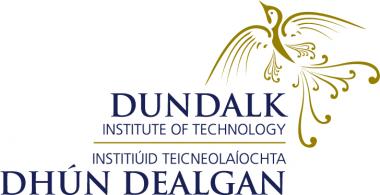The use of HEInnovate in Dundalk Institute of Technology
In 2015, Entrepreneurship was one of the three strategic strands for Dundalk Institute of Technology (DKIT) in Ireland. Consequently, a lecturer specialised in entrepreneurship was nominated by the President of DKIT to attend an Entrepreneurship Educators Module, which was being delivered for all higher education institutions (HEIs) nationwide by Dublin City University (DCU). It was as part of this course, that HEInnovate was implemented in Dundalk IT.
The management and academic staff of DKIT were invited to carry out the HEInnovate online self-assessment across all then seven areas of the instrument. This approach resulted in rather low number of responses, but the facilitators learnt quite a few lessons from this first experience of using the online platform and self-assessment:
- The timing of self-assessment administration is critical, and it has a direct impact on completion rates
- There could be a lack of understanding around the purpose and valueof the HEInnovate self-assessment tool. In fact, if respondents do not know how they contribute to a particular area, they may not respond
- Third, the self-assessment instrument could be perceived to be too long, and the online registration problematic, potentially resulting in several questions being left unanswered
The School of Business and Humanities wanted to improve the number of respondents to make the results more meaningful. The learning from this first implementation was incorporated into the planning of a second implementation, which was supported by the following actions:
- The importance of the timing of the self-assessment completion was noted, and a better academic timeframe was observed and planned
- The purpose and end purpose of the exercise was explained in more detail
- Feedback on the application of the tool and the perceived lack of user-friendliness of the registration was brought back to the team in Technopolis and improvements have since been made to make it more user friendly
Consequently, in January 2017, as part of a newly formed Entrepreneurship and Marketing research group (EMeRGE), the School of Business and Humanities identified two of the then seven themes to further investigate within the school, seeking the opinions of the academic staff and management.
Based on the lessons learned, in our subsequent self-assessment round we:
- Administered the survey at a more appropriate time in the academic calendar, included a wider response window and built in time for follow-up/reminders
- Incorporated a clear statement as to the tool’s purpose
- Secured active support from the Head of School Office, who circulated invitations to staff
- Focused on just two of the dimensions (‘Entrepreneurial Teaching & Learning’ and ‘Measuring the Impact’) which consisted of 11 questions across these two themes
- Made the questions available both as a Word document attached to the e-mail, and as a hard copy
We also conducted a small interactive pilot study. The results suggested that it would be beneficial to analyse responses to learn from and act on the findings, so to this end, while the respondents were polled anonymously, they indicated whether or not they were lecturing in the field of entrepreneurship and if they were part of staff or management.
These amendments resulted in a considerably higher level of engagement, and with a total of 64 surveys returned, this meant a final response rate of 80%. The impact of this was an increased level of interest and awareness in entrepreneurial activity and teaching across the School. The results have been analysed, and an action plan to be drafted to increase awareness of entrepreneurial teaching and learning and the impact of entrepreneurship in DKIT.
This user story was prepared by Annmarie McHugh, Lecturer in Business Studies & Programme Director, School of Business and Humanities, Dundalk Institute of Technology (IE) and edited by Zsuzsa Javorka, Technopolis Group

